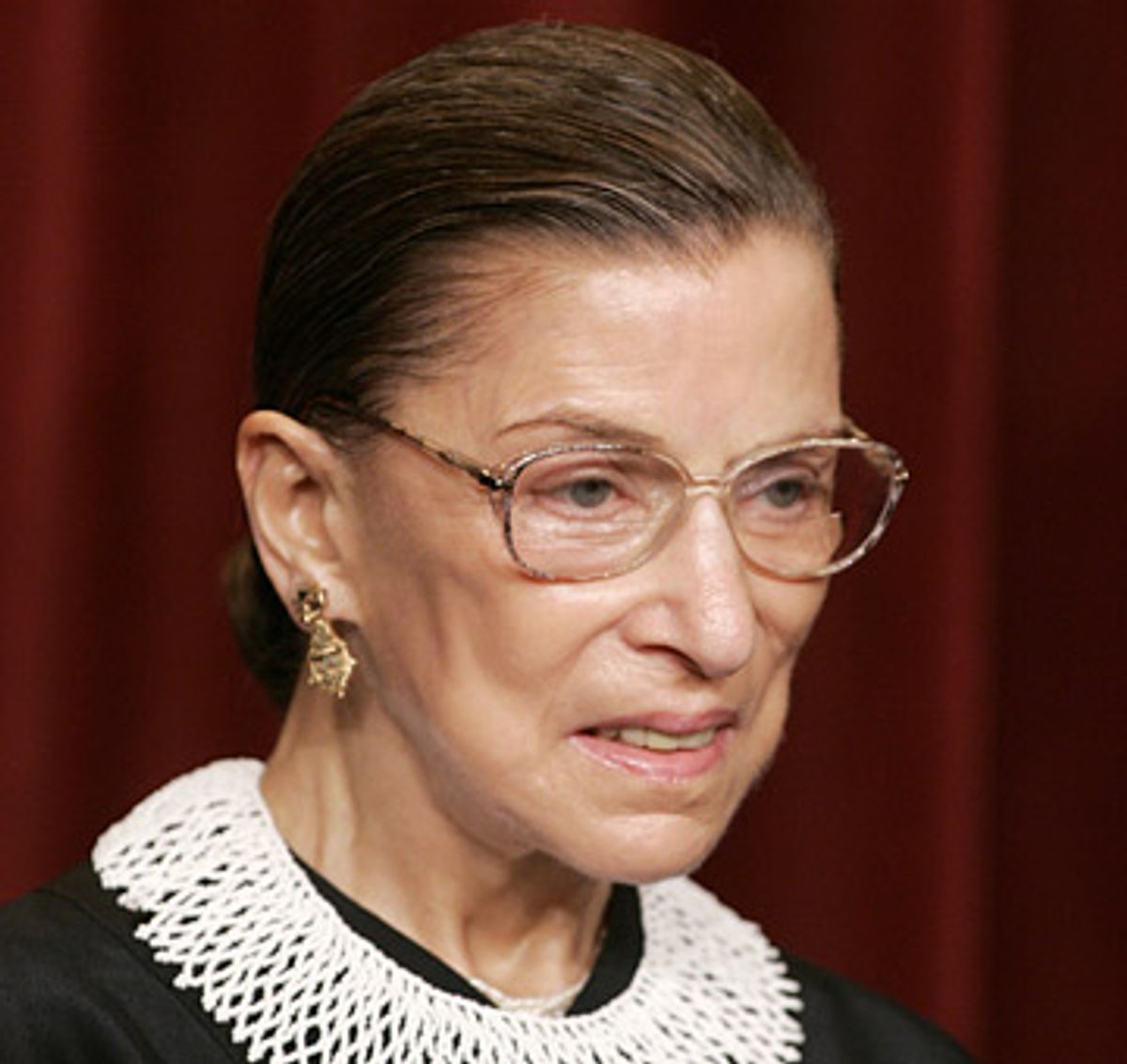Supreme Court Justice Ruth Bader Ginsburg told an audience at the University of Chicago Law School on Saturday night that a lack of "judicial restraint" in the court's ruling on Roe v. Wade gave abortion opponents a "clear target" that continues to fuel anti-choice activism 40 years later.
As reported by the Associated Press:
"That was my concern, that the court had given opponents of access to abortion a target to aim at relentlessly," [Ginsburg] told a crowd of students. "... My criticism of Roe is that it seemed to have stopped the momentum that was on the side of change."
The ruling is also a disappointment to a degree, Ginsburg said, because it was not argued in weighty terms of advancing women's rights. Rather, the Roe opinion, written by Justice Harry Blackmun, centered on the right to privacy and asserted that it extended to a woman's decision on whether to end a pregnancy...
Ginsburg would have rather seen the justices make a narrower decision that struck down only the Texas law that brought the matter before the court. That law allowed abortions only to save a mother's life.
A more restrained judgment would have sent a message while allowing momentum to build at a time when a number of states were expanding abortion rights, she said. She added that it might also have denied opponents the argument that abortion rights resulted from an undemocratic process in the decision by "unelected old men."
As noted by the New York Times editorial board and Yale Law School professors Linda Greenhouse and Reva Siegel, Ginsburg's previously-asserted idea that the court got "ahead of public opinion" on abortion and "short-circuited" an evolving political process at the state level is deeply problematic:
[P]olitical conflict over abortion was escalating before the Roe decision, and state progress on decriminalization had reached a standstill in the face of opposition from the Roman Catholic Church.
In 1970, a measure legalizing abortion in New York cleared the State Assembly by just a single vote. Only a veto by the state’s Republican governor, Nelson Rockefeller, blocked its partial repeal two years later. Had the Supreme Court waited for the states to move, women in a large portion of the country would still be denied the fundamental right to make their own childbearing decisions.
The claim that the court invited a backlash by getting too far ahead of public opinion does not hold. At the time of the ruling, a Gallup poll showed a substantial majority of Americans favored letting the abortion decision be made “solely by a woman and her physician,” with more Republicans than Democrats in favor. In fact, at the confirmation hearing for Justice John Paul Stevens in 1975, not a single question about Roe v. Wade was posed.
In her Saturday remarks, Ginsburg went on to say that a "worst-case scenario" in which Roe is overturned wouldn't "matter that much" because there are "a number of states that will never go back to the way it was."
Say what?
Ginsburg's comments are dangerously narrow-minded; the loss of a constitutionally-protected right to abortion (as scaled-back and inaccessible as certain state lawmakers have already made it) would most certainly "matter" to women in those "other states" -- and reproductive health advocates everywhere. Ginsburg herself has acknowledged that a Roe reversal would signal a virtual end to accessible abortion care for low-income women. (Which is, by the way, already a serious problem.)
As she told audiences at the Aspen Ideas Festival in 2010: "The only women who would be truly affected are poor women. Because even at the time before Roe, women who wanted abortions could have a safe, legal abortion… Whatever the court may do, it's only the poor women who will suffer. When people realize that, maybe they will have a different attitude."
And that doesn't "matter that much?"
It seems Ginsburg's neck doily might be on too tight.



Shares